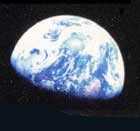Climate

some remarks on global heating and ocean acidity
|
Permafrost Millions of lakes have newly appeared. They are collapses in the
layer of permafrost, ground filled to 40 meters down or more with
frozen water, across the vast sub-Arctic regions of northern America
and Asia — a fifth of the planet's land surface. As the ice
melts, the thick layer of long-dead plant and animal matter decomposes
at increasing speed. It releases not only carbon dioxide but methane,
the greenhouse gas that is 25 times more effective than carbon dioxide.
It contributes to global warming, which in turn increases the rate
of thawing — a feedback loop. By 2100 permafrost-thawing could
be producing more methane than all other sources together. If you
stand beside one of the ponds, see a bubble erupt from the surface,
and touch a match to the gas, it becomes a five-meter-high pillar
of flame. Here is a scientist's
account of witnessing this. She says it's “like leaving
the freezer door open“. Note the plea in the last paragraph.
|
